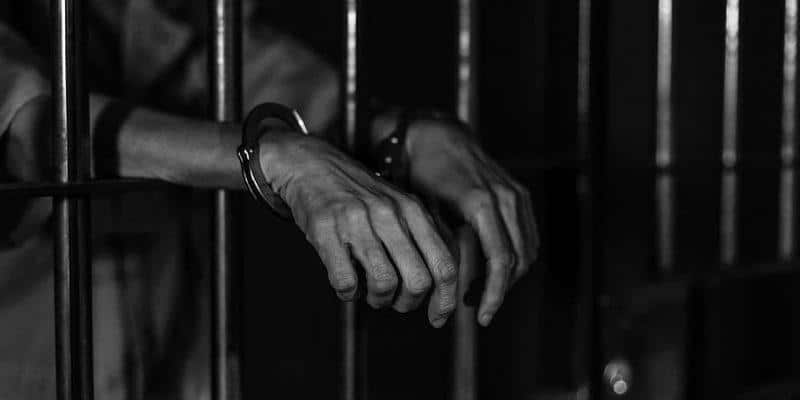
Undertrial Prisoners in India and criminal procedure
Introduction
Undertrial prisoners refer to individuals who have been arrested and are awaiting trial or whose trials are still ongoing. They have not been convicted of any crime and are presumed innocent until proven guilty. These prisoners are held in custody during the trial process, either in jail or other detention facilities. The purpose of holding undertrial prisoners is to ensure their presence during the trial and to prevent them from fleeing or tampering with evidence.
Undertrial prisoners in India represent a significant segment of the prison population, highlighting the challenges faced by the criminal justice system. This article delves into the constitutional and statutory provisions governing the rights and treatment of undertrial prisoners. Additionally, it discusses notable constitutional judgments that have influenced the approach towards undertrial prisoners in India.
Constitutional Provisions relating to undertrial prisoners
The Indian Constitution guarantees certain fundamental rights to all individuals, including undertrial prisoners. These rights are-
- Article 21 which enshrines the right to life and personal liberty, is of paramount importance. The judiciary has consistently interpreted this provision to include the right to a speedy trial and fair treatment for undertrial prisoners. The Supreme Court has held that prolonged detention without trial violates the fundamental rights of an individual.
- Article 22 safeguards the rights of undertrial prisoners by providing protection against arbitrary arrest and detention. It mandates that an arrested person must be produced before a magistrate within 24 hours of arrest.
- Article 39A of the Constitution also grants undertrial prisoners the right to legal representation and the presumption of innocence until proven guilty.
Statutory Provisions relating to undertrial prisoners
The Code of Criminal Procedure (CrPC) plays a crucial role in regulating the treatment of undertrial prisoners in India. Different provisions of the Code of Criminal Procedure,1973 try to regulate the framework of undertrial prisoners, which are-
- Section 167 of the CrPC sets a time limit for police custody, ensuring that an accused person is not detained indefinitely without trial.
- Section 57requires the police to produce the accused before a magistrate within 24 hours excluding the time of journey.
- Section 50- Arrested person should be informed of his ground of arrest and right to bail.
- Section 436A of the CrPC seeks to address the issue of undertrial prisoners languishing in jails due to their inability to furnish bail. This provision allows for the release of undertrial prisoners who have served half of the maximum term of imprisonment prescribed for their alleged offense.
- Section 428 of the Crpc provides that period of detention undergone by the accused to be set off against the sentence of imprisonment.
- Section 436 of the Crpc recognizes right to bail of persons who are accused of bailable offence. Even in the non-bailableoffences the courts have recognized right to bail barring exceptional cases.
Constitutional Judgments relating to undertrial prisoners
Over the years, the Indian judiciary has delivered several landmark judgments that have had a profound impact on the rights and treatment of undertrial prisoners. Following are some important judgments given by the Supreme Court.
- Hussainara Khatoon v. State of Bihar (1979)- It highlighted the issue of undertrial prisoners being detained indefinitely without trial. The Supreme Court held that the right to a speedy trial is an essential facet of Article 21. It mandated the release of undertrial prisoners who had been in custody for periods longer than the maximum sentence for their alleged offenses.
- D.K. Basu v. State of West Bengal (1997)-It focused on custodial torture and deaths. The Supreme Court laid down guidelines to prevent custodial violence and emphasized the importance of safeguarding the rights of arrested individuals, including undertrial prisoners.
- Arnesh Kumar v. State of Bihar (2014)-In this casethe Supreme Court addressed the issue of arbitrary arrests and misuse of provisions related to non-bailable offenses. The court directed that arrests in such cases should only be made after a preliminary investigation and with proper justification, ensuring protection against unwarranted detention.
Conclusion
The constitutional and statutory provisions in India provide a robust framework for protecting the rights of undertrial prisoners. However, challenges such as overcrowding in prisons, delays in trials, and lack of legal aid persist. The judiciary’s proactive approach in delivering landmark judgments has played a pivotal role in addressing these issues and ensuring the fair treatment of undertrial prisoners. Continued efforts are required to bridge the gap between constitutional provisions and their effective implementation, ultimately leading to a more just criminal justice system in India.
Significance of the Topic
The languishing of undertrial prisoners in India is a grave offense that India is facing. It questions the tenets of democracy, the principles of natural justice, and the overall functioning of the criminal justice system in India. Therefore, judiciary coaching suggests that judiciary aspirants must be mindful of the topic and should cover it accordingly. Judiciary coaching suggests that the same may be prepared from an essay perspective.



